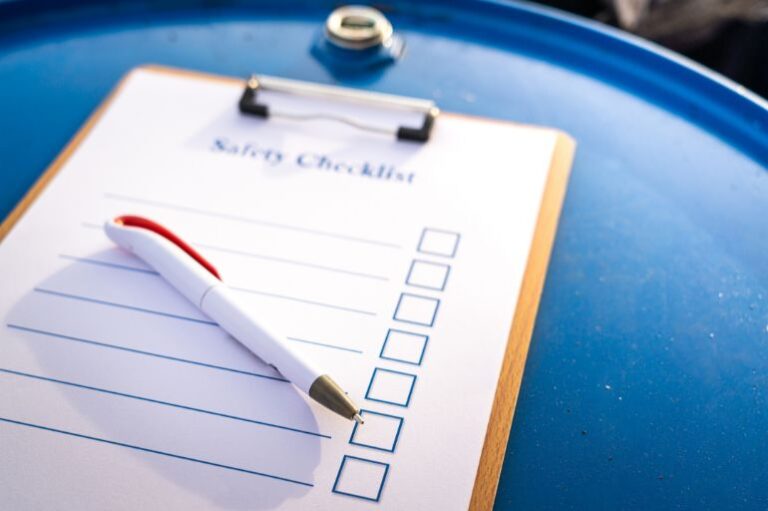Performing daily checks on fleet passenger cars and SUVs for safety is an important practice to ensure the vehicle is in proper working condition and minimise the risk of accidents or breakdowns. Here’s a list of key areas to inspect during your daily car safety checks:
- Tyres: Check the tire pressure using a pressure gauge and ensure they are properly inflated according to the manufacturer’s recommendations. Inspect for any visible damage or excessive wear. Don’t forget to include the spare tyre in your inspection.
- Lights: Test all exterior lights, including headlights (low and high beams), taillights, brake lights, turn signals, and hazard lights. Replace any bulbs that are burnt out or not functioning correctly.
- Brakes: Test the brakes for responsiveness and listen for any unusual sounds. Ensure the brake fluid level is within the recommended range.
- Fluids: Check the engine oil level, transmission fluid, coolant/antifreeze level, power steering fluid, and windshield washer fluid. Top up or change fluids as needed, following the vehicle’s manual.
- Mirrors and Windows: Clean and adjust all mirrors for optimal visibility. Inspect the windshield and windows for any cracks, chips, or obstructions that might impair your vision.
- Wipers: Inspect the windshield wipers for wear and tear. Replace them if they leave streaks or show signs of deterioration.
- Seatbelts: Check that all seatbelts are in good condition, retract smoothly, and securely latch. Ensure they are not frayed or damaged.
- Horn: Test the horn to ensure it’s functioning correctly.
- Battery: Check the battery terminals for corrosion and ensure they are securely connected. If your vehicle has a maintenance-free battery, verify the charge level through the battery indicator, if available.
- Emergency Kit: Keep an emergency kit in your vehicle that includes essential items such as a spare tire, jack, jumper cables, flashlight, first aid supplies, and a reflective warning triangle.
Remember, these daily safety checks should complement regular maintenance schedules and professional inspections. If you notice any significant issues during your daily checks or suspect a problem, it’s advisable to consult a qualified mechanic for a thorough evaluation and necessary repairs.






